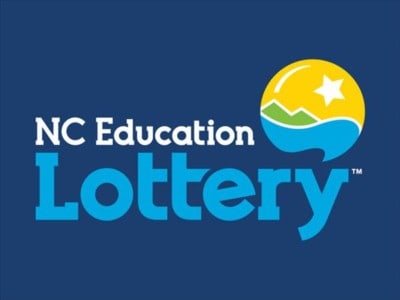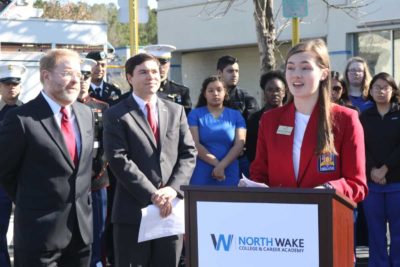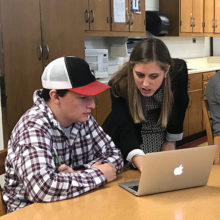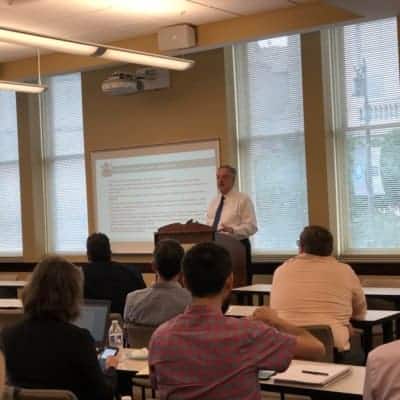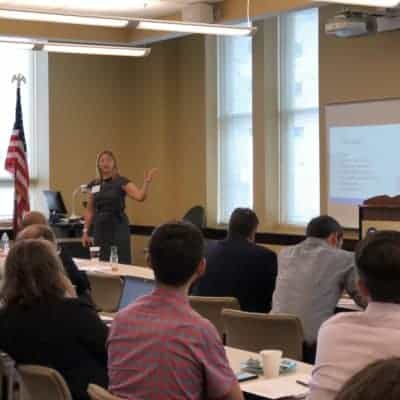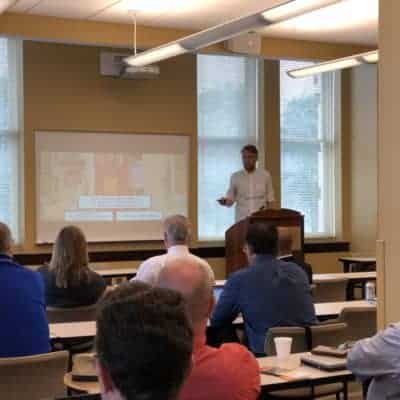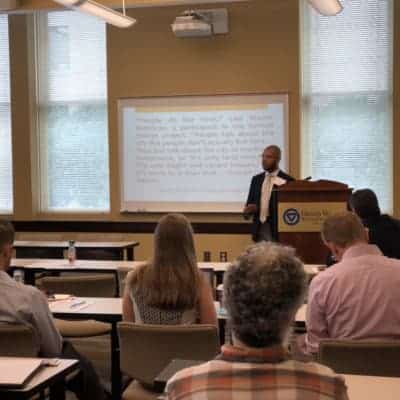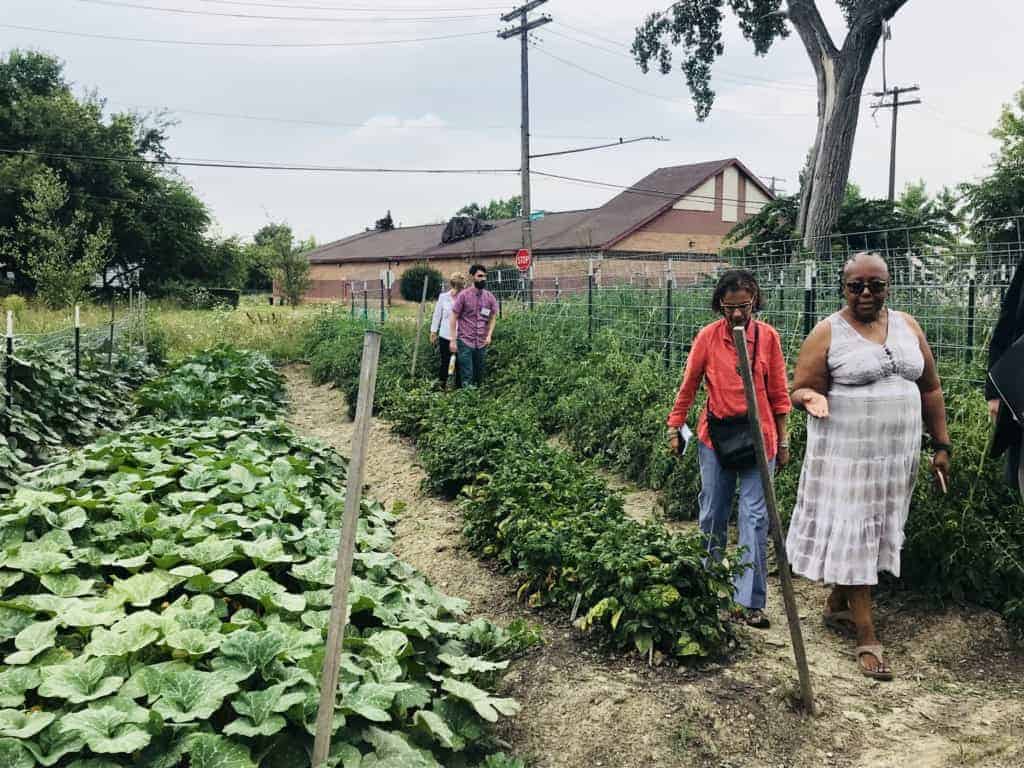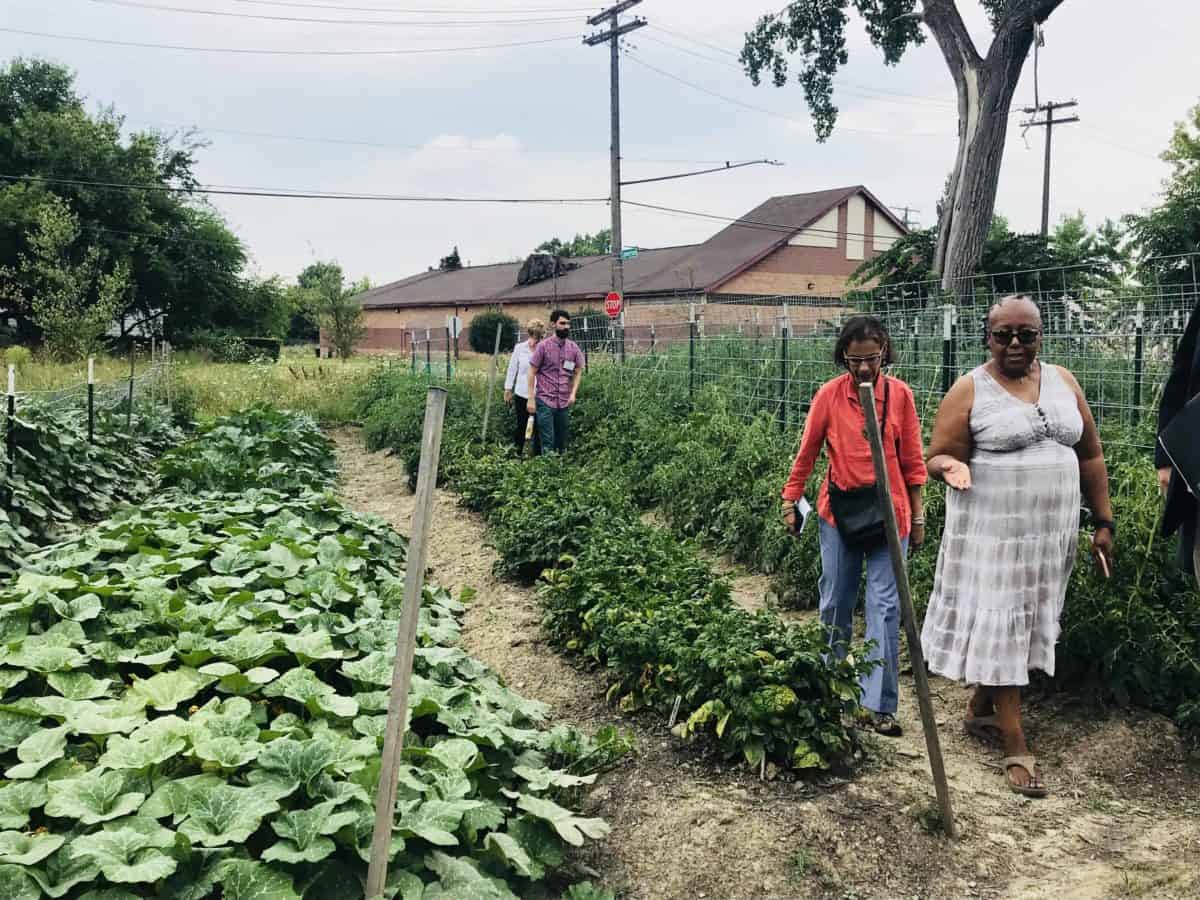
Recently, CEO Mebane Rash, COO Nancy Rose, and Director of Policy and Engagement Molly Osborne attended the national Governmental Research Association (GRA) Conference in Detroit, Michigan. Once one of America’s great cities, Detroit became the poster child for the decline of the Rust Belt manufacturing cities after suffering a series of setbacks over the last 75 years, from changes in the auto industry to race riots to bankruptcy. Most states do not have a Detroit — North Carolina does not have a Detroit — but the city’s decline and recent comeback offer lessons to all of us.
The GRA is a national organization of individuals professionally engaged in governmental research. Rash serves as current president, and Rose serves as Secretary. The Association holds an annual conference to bring together policy wonks from across the nation to share research, learn from each other, and celebrate our collective accomplishments. This year’s conference was hosted by GRA member organization Citizens Research Council of Michigan. Researchers, directors, and staff attended from Washington State, Utah, Massachusetts, Wisconsin, New York, Alabama, Louisiana, Illinois, Michigan, and North Carolina.
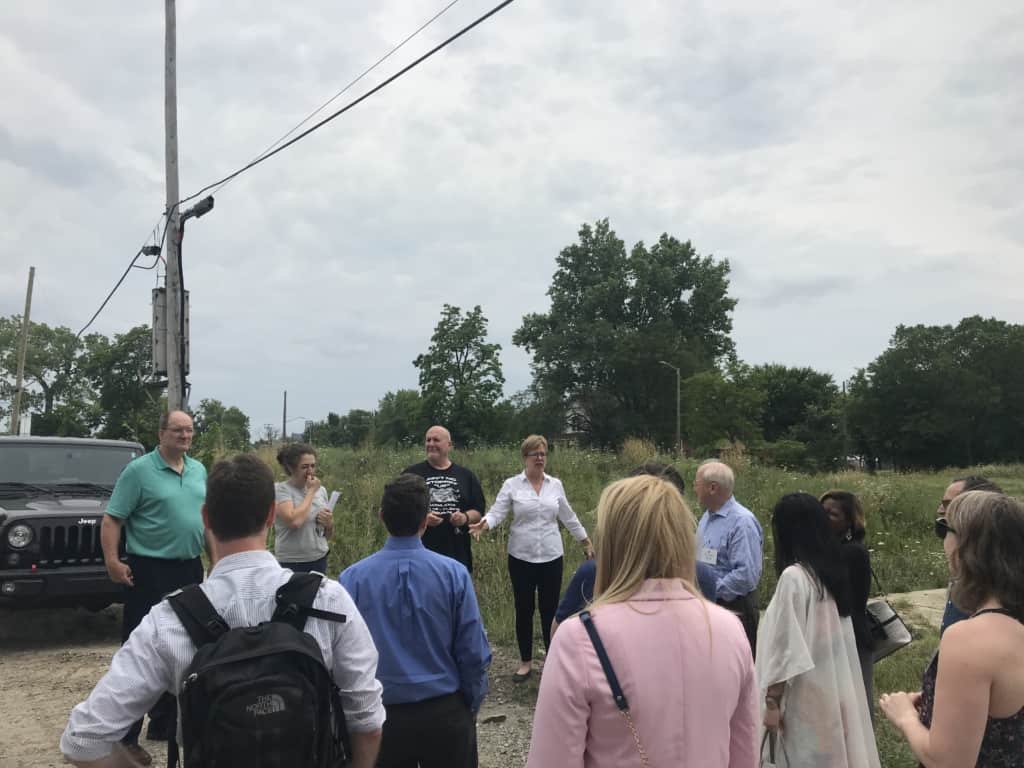
Conference sessions covered a wide variety of topics — Detroit’s 2013 bankruptcy, autonomous vehicles, federal tax reform, pensions, the Flint water crisis, and how urban farming is changing urban land use in Detroit. The group shared their successes and pitfalls in data presentation, community surveys, podcasts, webinars, YouTube videos, and other innovations.
Monday morning sessions began with a look at Detroit’s 2013 bankruptcy through presentations from four stakeholders: John Naglick, Finance Director for the City of Detroit, Sandra Svoboda, reporter at WDET Public Radio, Jerry Paffendorf, CEO and co-founder of Loveland Technologies, and Chase Cantrell, founder of Building Community Value.
It has been five years since Detroit filed for bankruptcy in July 2013. The reforms enacted during this process included replacing the annual budget with a four-year financial plan, requiring the city to maintain a budget reserve equal to five percent of annual expenditures, and establishing permanent biannual independent revenue estimating.
Throughout the bankruptcy process, a group of media organizations funded by the Knight Foundation collaborated to educate the city’s residents on what the bankruptcy meant for them. The group, called the Detroit Journalism Cooperative, held a series of community meetings to answer residents’ questions and better understand how they were experiencing the bankruptcy. “[The bankruptcy] wasn’t news to anybody here,” Svoboda stated. “The effects on the neighborhoods had already been felt.”
Paffendorf brought to attendees’ attention Detroit’s aggressive property tax foreclosure system and the effect it has had in moving people out of the city. If Detroit residents fail to pay property taxes for two years, Wayne County will foreclose on the properties and auction them to the highest bidder. According to Paffendorf, approximately 150,000 Detroit properties have been tax foreclosed and auctioned since 2005, representing one in every three homes. Since the bankruptcy, approximately 82,000 properties have been tax foreclosed and auctioned, 30,822 of which have been occupied.
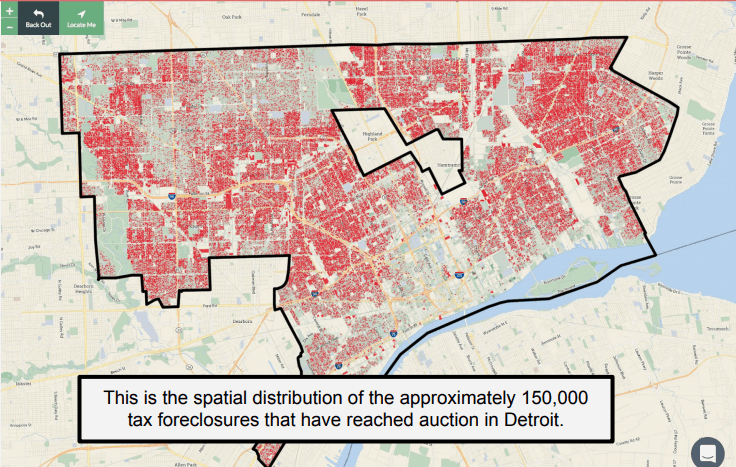
Paffendorf explained how Wayne County’s own financial struggles have contributed to the problem as they now rely on the revenue from foreclosing and auctioning properties to stay afloat: “Wayne County is making more money when people pay taxes late than if they pay on time.”
He ended his presentation stating,”Tax foreclosure is a factory for moving people out of the city.”
Turning abandoned lots into urban farms
Downtown Detroit has become a story of resurgence, but drive 15 to 20 minutes outside downtown and you still find empty lots, boarded up homes, and few people in the neighborhoods. A few residents have taken advantage of the availability of land to create urban farms.
Conference attendees visited two urban farms, Recovery Park and Oakland Ave Urban Farm, to learn how native Detroiters are remaking their neighborhoods and bringing jobs to areas where there were few opportunities previously.
Recovery Park is an urban commercial farm with a mission to provide jobs — and so much more — to re-entering citizens. Founder Gary Wozniak and Chief Impact Officer Anna Kohn gave us a tour of the farm, which currently has an acre and a half under production with plans to expand eventually to 100 acres.
The neighborhood in which Recovery Park is located used to be a hub of activity 75 years ago. With a house every 30 feet, Chene Street neighborhood was home to approximately 2500 people. Today, just 17 people call this neighborhood home. Instead of rows of houses, the neighborhood is made up of empty lots sprinkled with the occasional boarded up home.
Recovery Park started in 2008 as an idea, but it wasn’t until after the recession that Wozniak was able to secure the funding needed to open the farm. The farm is a commercial farm, and they sell their products at a premium to the reviving restaurant scene in Detroit. Wozniak has plans to build hydroponic greenhouses, which will allow them to greatly expand their earning potential and employ more people.
Recovery Park employs 13 people currently, seven of whom are re-entering citizens and fulfill their mission to create jobs for people with barriers to employment. Kohn runs their Associate Support Program, which coordinates three years of wraparound services and coaching for their associates on everything from opening a bank account to navigating relationships. According to Kohn, the Associate Support Program is the only agency in Detroit with a 100 percent success rate of no one returning to prison.
Attendees also visited Oakland Avenue Urban Farm in the North End of Detroit. When Jerry and Billy Hebron moved back to Detroit, they wanted to build something meaningful on the land adjacent to Jerry’s mother’s church. The couple checked in with the community to see what they wanted and learned that food, housing, and employment were the biggest issues in the community. Residents also told them, “We want something pretty and vibrant so people will know the North End isn’t dead.”
Today, they are celebrating seven years running an urban farm and farmer’s market on the six acre farm. Last year, they provided jobs for 60 people, and in the summers, they run programs for the local youth. Watch the video below for an interview with Billy Hebron, the farm manager.
For the remainder of the conference, attendees learned about the Flint water crisis, pension reform, and impacts of federal tax reform. You can find all conference presentations here.
Several GRA member organizations also received awards for most distinguished research, outstanding policy achievement, and most effective education. The N.C. Center for Public Policy Research (NCCPPR) has been a proud recipient over the years of multiple awards in all three categories on such research topics as high school dropouts, higher education governance, domestic violence, mental health reform, charter schools, financial aid in community colleges and universities, fraud committed against the elderly, and telepsychiatry.
In 2016, just a year after launching, EducationNC received the most effective education award for its work on issues of cross-jurisdictional, statewide importance. In 2014, former NCCPPR executive director and president emeritus Ran Coble received the Frederick P. Gruenberg award in recognition of his leadership and accomplishments.
Recommended reading
